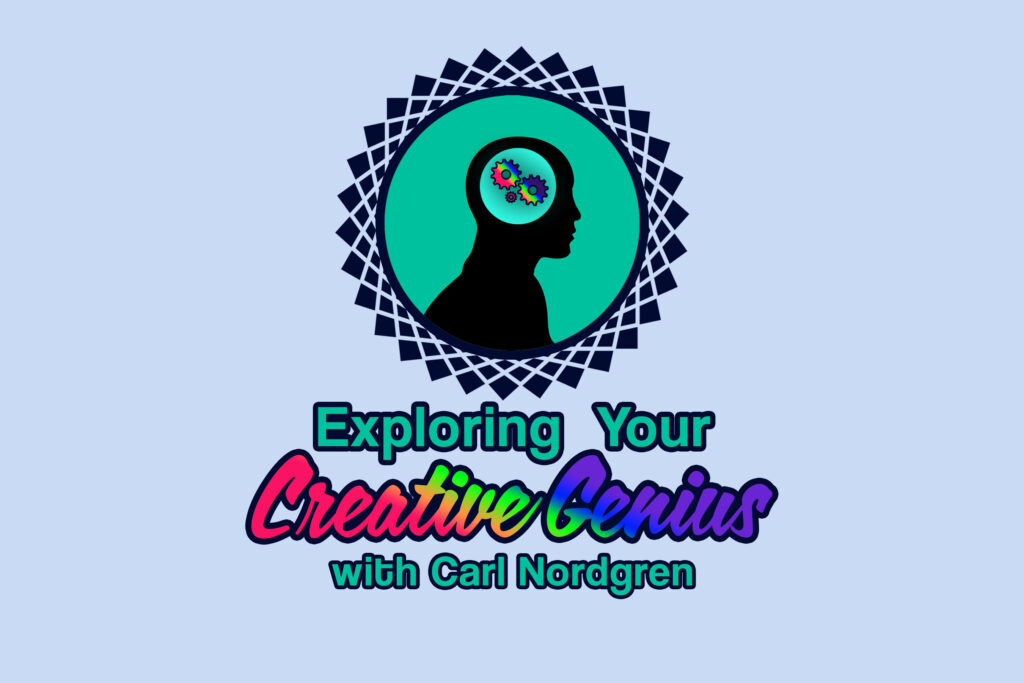Story will be a frequent topic for this column. I’ve been teaching folks how to be their most creative and entrepreneurial selves for decades and learned early on the more perspectives I can provide on a creative concept or entrepreneurial behavior the more likely you are to not simply consume my understanding but build your own understandings from those multiple perspectives: that understanding you construct will be most useful to you.
When I taught Creativity and Entrepreneurship courses to over 2,000 students at Duke I suggested they think of Story as the one and only Universal Knowledge Management Technology.
Pause in your reading for a moment and think about what that claim suggests to you.
It was abundantly clear my classes were filled with students who were much more confident in their ability to master new technologies than they were in becoming effective storytellers this proved to be a confidence boosting approach.
Seeing Story through that lens — quite a claim, yeah, the one and only Universal Knowledge Management Technology — provides fresh insights for fresh thinking about Story’s usefulness in different settings, for a range of purposes.
I would ask if they considered software and its code to be technology and of course they did. I asked if anyone wanted to argue against the view that language could usefully be thought of as a software technology, a communications system designed to create a benefit and not only that, it’s the first open-source software, with each of us able to make additions to the core code.
Then I claimed human language technology’s first killer app was Story, another communications technology relying on language for its code. I proposed for discussion that it is such a powerful tool it will shape the way people think and behave and it can change human expectations for ourselves.
Story advances understanding and creates advantage for the tool’s user and others as well.
It’s a knowledge management technology, turning information into knowledge by adding context and examples, by including human elements that assist the listener’s understanding of the relation and relevance, the usefulness, of the information. This invites a deeper understanding — neuroscience shows us how and why — and leads to new knowledge.
Perhaps wisdom will emerge.
Story manages that knowledge — it organizes it and archives it and invites easy transfers of it.
It’s Universal. We all know how Story works. We may not consciously think of ourselves as storytellers but each of us uses the elements of Story to persuade, to inform, to help accomplish goals throughout our lives, often at the most important times of our lives.
And we’ve all had Stories impact our lives in defining ways — repeatedly, I’ll bet.
This Universal Knowledge Management Technology is an insistent technology. If a CEO stands in front of a group of employees and shares information with them without putting it into context in the shape of some narrative that illustrates the information’s significance, the first thing the folks will do when the CEO leaves is create the Story helps them understand what they heard.
Neuroscience discoveries reveal why Story is so insistent.
Research finds that when a factual presentation of information is shared with an audience that information is processed in two isolated places, without engaging the rest of the brain’s cognitive processing networks.
But when information is wrapped in a narrative, when Story elements are used to illustrate or dramatize the information, virtually all the brain is engaged, fully related to all of itself, including the motor, the sensory, and the prefrontal cortexes.
With Story you get sensing and thinking, logic and emotion, the rational and the intuitive.
In addition, the emotional qualities Story solicits and elicits result in the brain’s release of the neurotransmitter dopamine, making memories of the information more accurate and easier to recall, and triggering systems that prepare the body to act.
Story also activates the brain’s neural coupling capacities resulting in the listeners feeling the story through their own ideas and experiences. In fact, there is even a brain mirroring can take place, so listeners will experience similar brain activity as the speaker, and each other.
Our brains come fully alive, approaching states of optimal performance, when listening to a compelling story.
This coupling and mirroring leads to another core benefit of Story as a Universal Knowledge Management Technology. When the leader of an organization has presented the company’s mission or plans or new initiatives in the form of a Core Company Story that illustrates what we all need to be doing as we are all working together towards common goals, that Core Company Story affects us more deeply than the plan itself will. The Story assures we’ll remember what’s significant to our work, we’ll understand the behaviors this Story is asking us to perform, and we relate more closely with each other as we make the Story real.
So, a good Story will help create the organization’s productive behaviors.
In Part 2 we’ll talk about how Aspirational Stories work, about the importance of knowing your audience’s Story, and how to use Story elements in conversations, presentations, and in idea generation and development.
Remember: You are a storyteller. You’ve come by it naturally, you’ve been surrounded by Stories your entire life, and in my experience if you are a good listener — you are a good storyteller.
 “Exploring Your Creative Genius” takes an expansive view on what it means to be creative and entrepreneurial in an ongoing conversation led by Carl Nordgren — entrepreneur, novelist, and lifelong student with decades of experience growing his own creative capacity and assisting others to do the same in exciting new ways!
“Exploring Your Creative Genius” takes an expansive view on what it means to be creative and entrepreneurial in an ongoing conversation led by Carl Nordgren — entrepreneur, novelist, and lifelong student with decades of experience growing his own creative capacity and assisting others to do the same in exciting new ways!
You can also find more ways to explore your creative genius in this column’s companion radio program, broadcasting on 97.9 The Hill WCHL and posted here on Chapelboro!
Chapelboro.com does not charge subscription fees, and you can directly support our efforts in local journalism here. Want more of what you see on Chapelboro? Let us bring free local news and community information to you by signing up for our biweekly newsletter.


